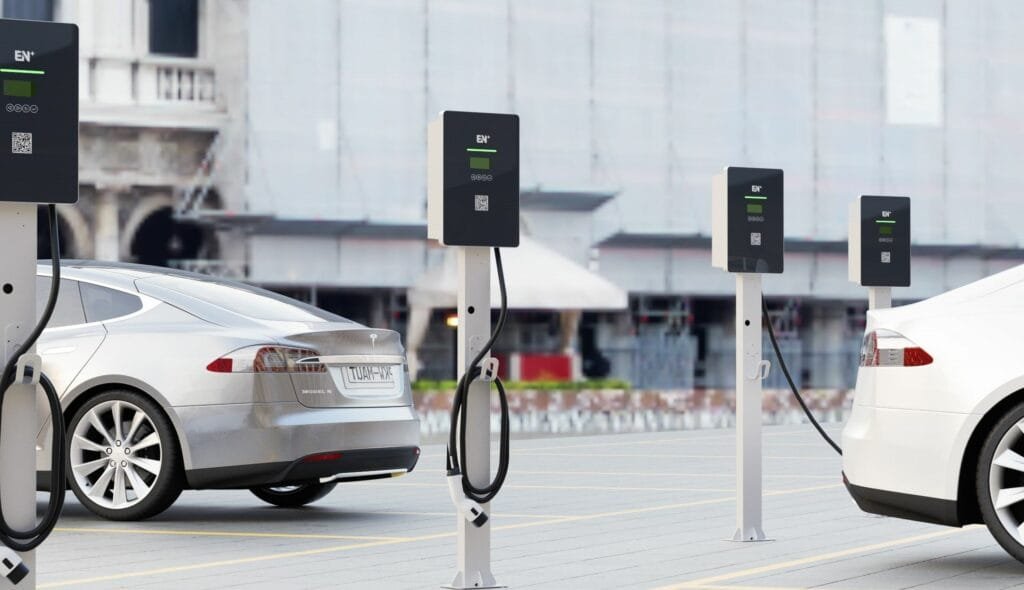The rise of electric vehicles (EVs) is changing how we travel. However, many people find it challenging to charge their EVs, especially if they live in apartments or places where a home charging station is inaccessible. For these individuals, finding a solution to this issue is crucial.
In this article, we’ll discuss how electric vehicle owners can charge their cars without access to a home charging station. This includes exploring alternative charging options and technologies that enable EV drivers to stay powered up, even without a private charging point at home. Whether it’s community charging hubs, portable chargers, or public charging networks, there are growing solutions for EV owners facing this dilemma.

Do You Need a Charging Station for Your Electric Car?
No, having a personal charging station for your electric car is not absolutely necessary. While it offers convenience, there are alternative options for charging an EV, such as Level 1 EV Charging. You can use a standard 120-volt outlet at home to power your electric car. Known as ‘trickle charging,’ it provides a few miles of range per hour. Although it is the slowest type of EV charging, taking about 30 hours to fully charge a car depending on the battery size and vehicle model, it can be practical for average drivers who use their cars for short distances. Additionally, if there is a public charging station near your workplace or home, you can use those for faster charging.
If Level 1 EV Charging is your only option, it’s important to consult a licensed electrician to ensure that a dedicated circuit supports the power load safely.

How to Charge Your Electric Car Without a Home Charger
With the EV market growing worldwide, options for charging without a personal home charger are expanding. This makes it easier for EV owners to find convenient and efficient ways to power up their vehicles even when they’re on the road.
As mentioned above, you can use a standard 120-volt socket to charge your car, which is also known as Level 1 charging. EVs often come with a cable that can plug into these sockets without special equipment—much like a kitchen appliance. This method is straightforward but slow. It’s best suited for overnight charging or those who can afford to wait longer for their EV to charge.
However, the good news is there are public chargers you can use to power up your electric vehicle more efficiently.
Public Charging Stations
Widely available in cities and along major highways, public charging stations offer a quick and convenient way to charge. They range from Level 2 chargers, which are faster than your standard home outlet, to rapid DC chargers that can provide a significant charge in a short period. These stations are often found in parking lots, shopping centers, and public transport hubs.
Workplace Charging
Some companies provide charging facilities for their employees. This is a great option for charging your EV while at work, making it ready for your commute home.
Destination Charging
Many retail outlets, hotels, and restaurants now offer EV charging as a customer service. This means you can charge your car while shopping, dining, or staying overnight at a hotel. Destination chargers usually provide a slower Level 2 charge. This is perfect for topping up your battery while you’re engaged in other activities.
On-Street Charging
In urban areas, on-street charging is becoming more common. These can be standalone charging points or integrated into street furniture like lampposts. While they may not be as fast as dedicated charging stations, they are useful for city dwellers who park their cars on the street.
Community Charging Hubs
These are chargers shared among residents in a community, particularly in multi-unit dwellings without individual charging points.
Rapid Charging Networks
For long-distance travel, rapid chargers are ideal. Located along highways, these chargers can provide a substantial amount of charge relatively quickly. Ideal for those going on road trips.

Safety Tips for Using Public EV Chargers
Electric vehicles, while environmentally promising, come with unique safety considerations, especially when charging in public spaces. Here, we emphasize the importance of safety and provide guidelines for secure EV charging, mainly when relying on alternative methods away from home:
1. Choose Reliable Stations
2. Mind Your Cables
3. Inspect Equipment
4. Follow Protocols
5. Know Emergency Procedures
6. Protect Data
7. Stay Alert While Charging

EV Charging Station Cost: At Home vs Public Charging
Charging up your electric vehicle can be a wallet-friendly affair at home, but it might put a little dent in your budget when you go public.
At Home:
In the U.S., a Level 2 charging station costs most homeowners between $350 and $1,400 to buy and set up. The electricity expenses depend on your local utility rates, averaging around $3 to $8 for a full charge.
Generally, expect to pay $3 to $8 per top-off for your EV in the comfort of your garage. On the other hand, home charging in Europe typically falls between €10 to €20 per kWh. So, completely charging an 80 kWh battery, which gives around 300 miles of range, can be from €8 to €164.

In Public:
When it comes to public charging in the US, it’s pricier than home charging, with a range of about $12 to $16 per charge. At a Level 3 charging spot, you’ll gain an extra 100 miles of range in about 48 minutes. But it could cost you anywhere from $6.24 to $16.80, depending on your location.
However, an NREL study discovered that, on average, it costs about 15¢ per kWh to charge an EV nationally. While charging during off-peak hours can save EV owners an average of 24%. On the other hand, public charging costs in Europe can differ significantly.
For instance, in Germany, certain providers charge up to 49¢ per kWh for up to 22 KW. Moreover, charging your EV from 5% to 80% at a public DC fast charger takes around 20-45 minutes, costing about €0.40 to €0.65 per kWh. So, a rapid charge would set you back roughly €24 to €393.
Conclusion
From comparing home and public EV charging costs to staying safe during public charging, we’ve covered the essentials for EV owners. Whether you have a home charger or not, En Plus EV charging stations provide customized, practical, and sustainable solutions. Explore more of our innovative options for a convenient and eco-friendly electric future!


